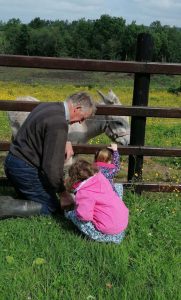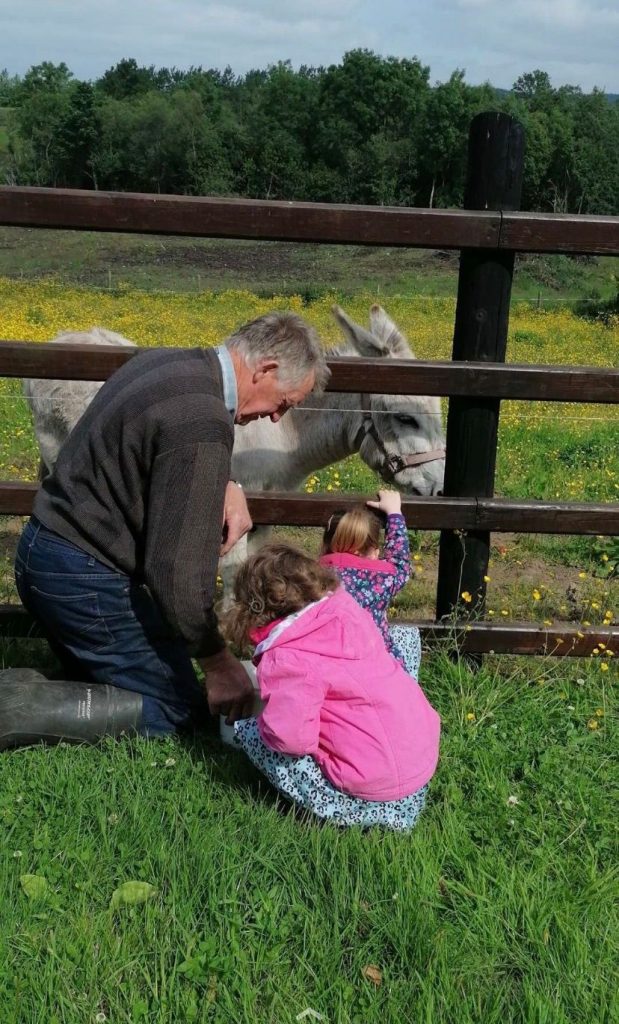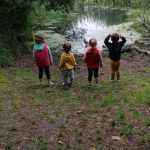The Power of Intergenerational Connections for Children with Specialized Needs
In today’s fast-paced world, families are often juggling multiple responsibilities, making it challenging to ensure that children—especially those with specialized needs—receive the emotional and developmental support they require. One of the most powerful yet often underutilized resources for these children is intergenerational engagement. Grandparents, family friends, and community members with diverse life experiences can offer invaluable lessons, emotional support, and encouragement in ways that enhance a child’s growth and well-being.

The Benefits of Intergenerational Engagement
Children with specialized needs often thrive in environments that provide patience, understanding, and different forms of communication. By incorporating intergenerational interactions into their daily lives, families can open new avenues for learning and connection. Here’s how these relationships can make a difference:
- Emotional Security and Confidence
Grandparents, family friends, and other older mentors often offer a sense of stability and unconditional love that helps children feel safe and valued. This emotional security is particularly beneficial for children with anxiety, autism spectrum disorders, or sensory processing challenges. Having a grandparent read a favorite story, or a trusted neighbor patiently teach a new skill, can provide a calming presence that boosts confidence and self-esteem (Ferguson & Waxman, 2019).
- Unique Learning Opportunities
Diverse generational perspectives can enrich a child’s understanding of the world in ways that traditional learning environments may not always provide. A retired grandparent can share skills such as gardening, knitting, or woodworking—activities that enhance fine motor skills and patience. A family friend who speaks another language can introduce bilingual storytelling, benefiting children with speech and language delays. These natural learning moments help children grasp new concepts in a relaxed and engaging way (Smith et al., 2021).
- Social and Communication Growth
For children who struggle with social cues or verbal communication, interacting with different generations provides opportunities to practice essential skills. Older adults often exhibit patience and repetition in conversation, helping children develop verbal skills at their own pace. Simple, structured social interactions—like playing board games with a grandparent or baking with a neighbor—can help children practice turn-taking, listening, and following directions in a low-pressure environment (Johnson & Rivera, 2020).
- Resilience Through Storytelling and Shared Wisdom
Intergenerational relationships introduce children to personal stories of resilience, perseverance, and joy. A grandparent sharing memories of overcoming challenges in their youth can inspire a child to keep trying despite difficulties. This kind of storytelling helps children understand that obstacles are a natural part of life and that they, too, can develop the strength to face challenges with support from their family and community (Williams, 2018).
Incorporating Intergenerational Engagement into Daily Life
Bringing different generations together doesn’t have to be a complicated process. Here are some simple and meaningful ways to incorporate these relationships into your child’s routine:
- Regular Visits or Virtual Chats: If distance is a factor, setting up weekly video calls with grandparents or older family friends can create a consistent and comforting connection.
- Shared Activities: Plan activities like cooking, crafting, or storytelling that encourage collaboration and creativity.
- Community Programs: Seek out intergenerational programs in your local area, such as library reading sessions, gardening clubs, or mentorship initiatives, where children can engage with older adults in structured yet relaxed settings.
- Encouraging Storytelling: Ask grandparents to share stories from their childhood, which can be both entertaining and educational for children.
- Volunteering Together: Participating in community service projects with family members of different generations fosters teamwork and social awareness.
A Lasting Impact on Your Child’s Growth
Children with specialized needs benefit immensely from the warmth, wisdom, and patience of multiple generations. By embracing the natural learning that comes from these relationships, families can create a support system that nurtures emotional well-being, social skills, and lifelong resilience. Encouraging these bonds not only enriches the lives of children but also strengthens family and community ties, creating a world where every child feels supported and empowered.
By weaving intergenerational engagement into your family’s everyday life, you are offering your child an invaluable gift—the gift of connection, experience, and love that spans generations.
References
- Ferguson, J., & Waxman, H. (2019). The Role of Grandparents in Child Development. Journal of Family Studies, 34(2), 145-162.
- Smith, L., Brown, T., & Garcia, M. (2021). Intergenerational Learning and Child Development. Educational Psychology Review, 29(3), 217-235.
- Johnson, R., & Rivera, C. (2020). Social Skills Development Through Multi-Generational Interactions. Child Development Perspectives, 12(4), 302-315.
- Williams, P. (2018). Storytelling as a Tool for Building Resilience in Children with Special Needs. Early Childhood Research Journal, 20(1), 88-105.








